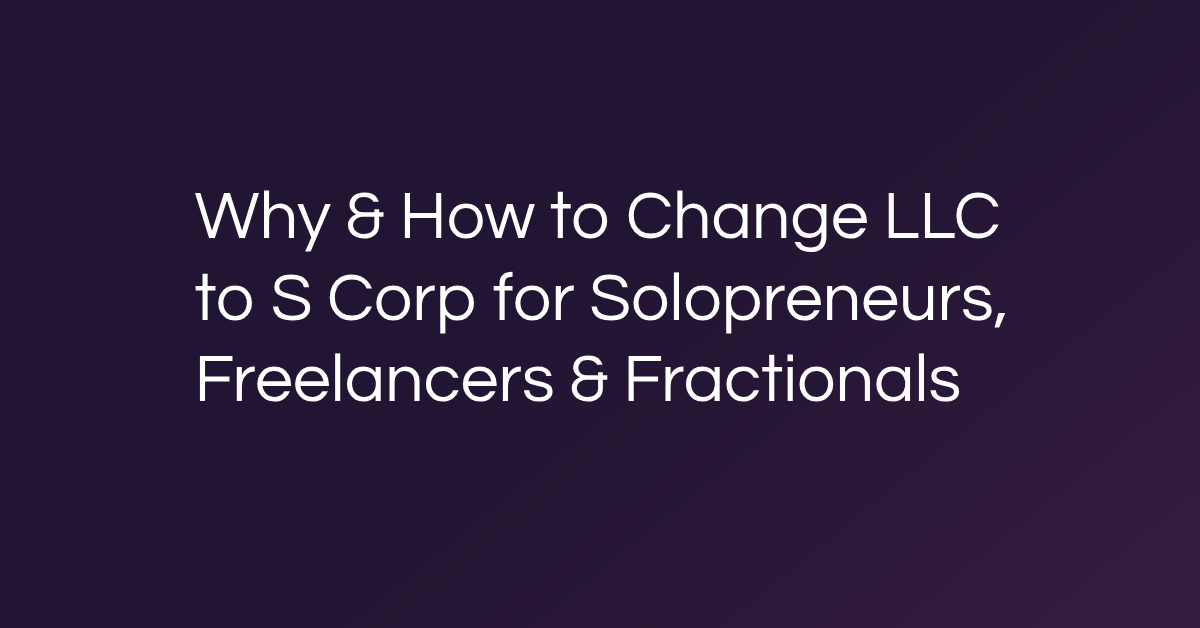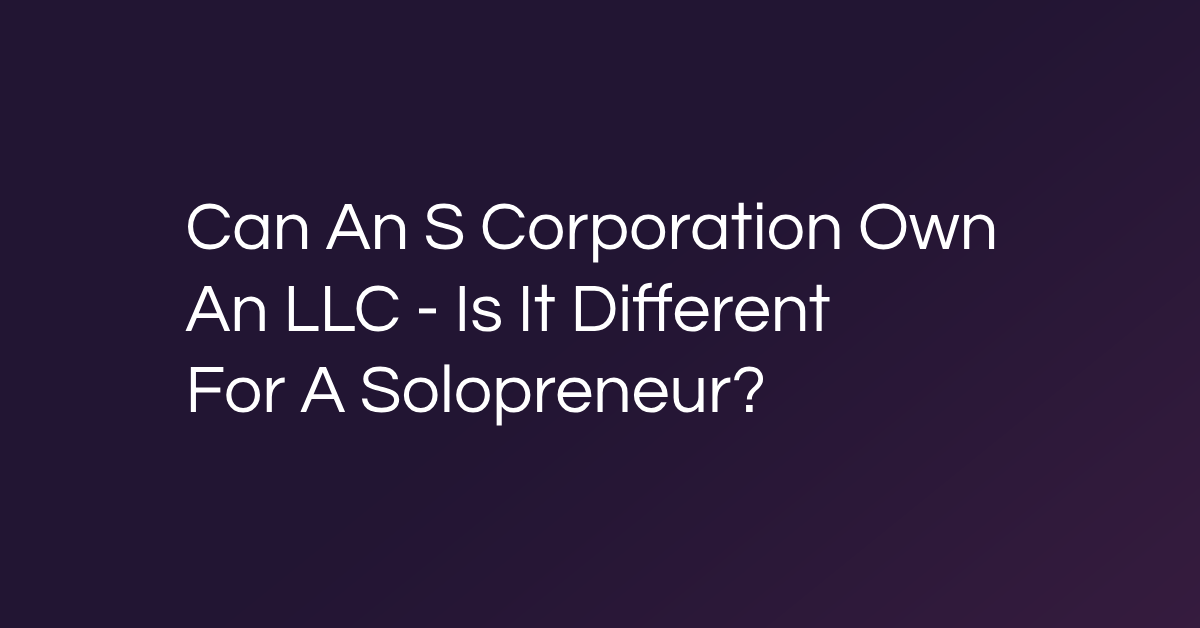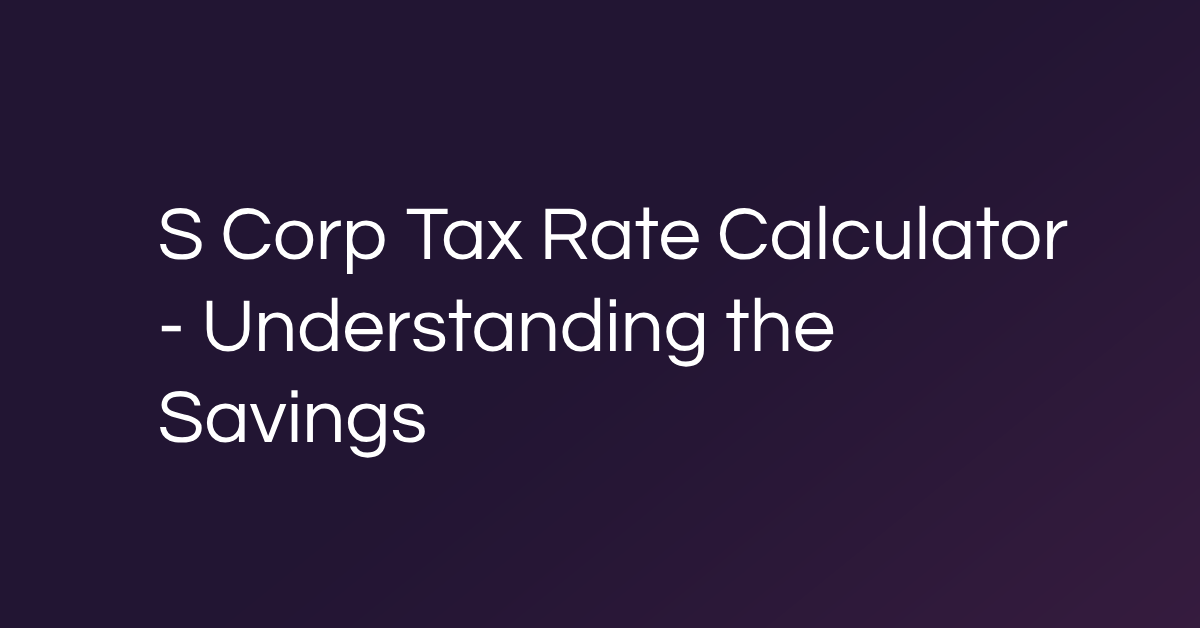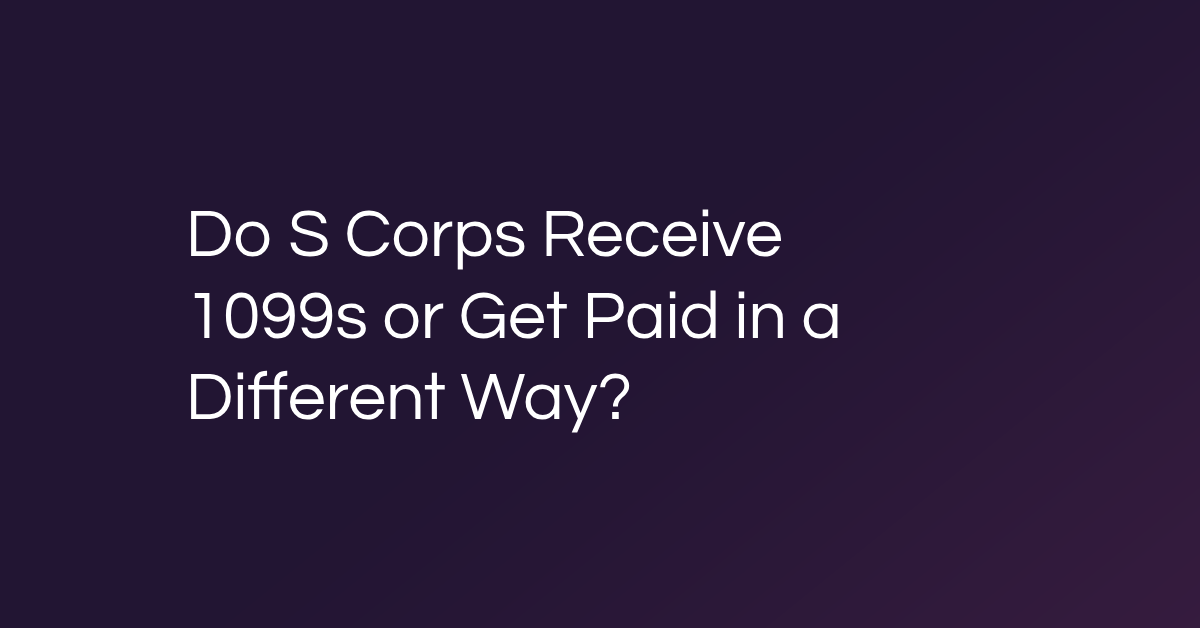Limited liability companies (LLCs) represent one of the most common business structures in the United States. There are roughly 21.6 million LLCs in operation across the country, whereas there are a little over five million S Corporations (S Corps). This is probably because S Corps are slightly more complex to operate, but the benefits of an S Corp can greatly outweigh that pain. Luckily S Corp does not mean you need to create a new company either, it’s simply a tax election you make with the IRS for an existing LLC. You still get to all of the tax savings benefits of an LLC, you just get to add a few more that really can move the needle.
Despite the lower number today, S Corps are becoming increasingly popular, especially among freelancers and solopreneurs due to the unique tax benefits they provide and other advantages from the structure. For these reasons many freelances/solopreneurs want to know how to change LLC to S Corp, here is a breakdown of the process.
Why change from LLC to S Corp?
Before we discuss how to convert LLC to S corp, it’s important to understand why doing so may be worthwhile for your business. By forming an S Corp, you can enjoy the following benefits:
Tax savings
An S Corp still uses pass-through taxation similar to an LLC, but with a payroll twist. The business won’t pay taxes at the entity level like a traditional C Corp does, so there is no double taxation. Instead, all of the income, losses, and credits pass to you, which can translate to meaningful savings assuming you run a reasonable salary for yourself with a payroll. You won’t have to pay self-employment taxes, which cover Medicare and Social Security contributions, instead those come out of the payroll. And that alone can save you thousands to tens of thousands in annual tax liability.
Additionally, with an S Corp, you pay yourself a salary that’s subject to payroll taxes (Medicare and Social Security). However, any additional profits you distribute to yourself as dividends aren’t subject to self-employment taxes. That, in turn, can result in huge cost savings, especially if you are working with healthy net income numbers in the $80-$250K range.
Limited liability protection
Because S Corp is just a tax election for your LLC, the S Corp still provides personal liability protection. You can use the business structure to protect your assets if the company faces legal or financial trouble. S Corps are required to fully separate business and personal assets/banking, so this may empower more defendability in a liability situation than just an LLC.
Even if you think your business is relatively low risk, it’s important to protect your personal assets from dangers like corporate bankruptcy, lawsuits, or financial hardships. Separating personal and professional assets can give you peace of mind on the off chance that your company ever falls on hard times.
Credibility and growth potential
Transitioning to an S Corp can also lend credibility to your business, especially if you work with larger or more high-profile clients. They may view your business as more formal and professional than a sole proprietorship and LLCs. Additionally, the S corp structure can facilitate growth by allowing you to attract investors or add shareholders down the line.
How to change LLC to S Corp: A step-by-step guide
Now that you know why the process of changing from LLC to S Corp could be a smart move for your business, let’s walk through how it is actually done.
Creating an S Corporation boils down to these five simple steps:
Check your eligibility
Before you begin the process, you must make certain that your business is eligible for S Corp status. The IRS has specific requirements for businesses looking to become S Corporations, which are as follows:
- Must be a domestic corporation
- Cannot have more than 100 shareholders
- Shareholders must be U.S. citizens, residents, or certain types of trusts or estates
- Can only issue one class of stock
These eligibility criteria are typically not a problem for solopreneurs, freelancers, or fractionals. Once you confirm your LLC meets these requirements, you’re ready to move forward.
File IRS form 2553 & get an EIN
The next step in changing from LLC to S Corp involves filing IRS Form 2553, which is the official document used to elect S Corp status. The IRS requires that this form be filed no more than two months and 15 days after the beginning of the tax year in which you want your decision to take effect. If you miss the deadline, you may need to wait until next year to complete the transition.
In any case, you’ll need to include some basic information about your business on Form 2553, such as:
- The name and address of the LLC
- The date it was formed
- The tax year for which you want its new S Corp status to apply
It’s best to consult a tax professional if you have any questions about completing or submitting the form, our team at Besolo does this for every new member as part of our core offering. If you do not already have an EIN you will need to get one to be able to run payroll for yourself, see next step.
Adjust your payroll process
Once your S Corporation status is filed, it’s time to make changes to how you pay yourself. As an LLC owner, you may have simply taken owner draws from the business’s profits. However, as an S Corp owner, you must pay yourself what the IRS calls a reasonable salary and withhold payroll taxes, just like any other employee.
You’ll also need to set up a formal payroll process, which can be easily managed using payroll software (like Besolo) or working with an accountant. Remember, the IRS requires your salary to be reasonable, meaning it should align with what others in similar positions and industries earn.
Update your legal documentation
You’ll need to update any arrangements or agreements that reference your business, such as your operating agreement, business bank accounts, and any contracts with clients or vendors. While the change from LLC to S Corp doesn’t require you to change the name of your business, you should ensure that all official documents reflect the new structure.
File annual reports and stay compliant
An S Corp can provide a slew of tax benefits while also protecting your personal assets. However, you must stay on top of state and federal reporting requirements to maintain your S Corp status and avoid any audits. Failure to file timely reports could cost you your filing status or result in penalties.
The process can certainly be tedious, which is why many savvy entrepreneurs partner with a third-party team like Besolo to expedite their S-corp formation.
Advantages of changing from LLC to S Corp
A few of the key benefits that come with making the change from LLC to S Corp are as follows:
- Tax Savings: Can reduce your tax liability
- Personal Liability Protection: Shields your assets from business liabilities
- Professionalism: Can boost your credibility with clients and investors
- Flexibility in Compensation: More control over how and when you pay yourself
- Unlock benefits access: Partnership with a company like Besolo can unlock access to group style benefits like healthcare, 401K, life, dental, vision, but S Corp is required to do so
An S Corp can support the long-term financial well-being of your business by reducing your tax liability and offering compensation flexibility. You can then reinvest these savings back into the company and promote further growth.
Considerations before you convert
There are a few things to consider before you change from an LLC to an S Corp, namely:
- Payroll: You’ll need a payroll system to ensure you are paying yourself on a recurring basis
- Compliance: S Corps have more reporting requirements
- Reasonable Salary Requirement: You must determine what counts as a reasonable salary
If you think the process to change from LLC to S Corp may be a bit more complicated than you may have liked, you can always contact an expert who focuses their work on S Corp formation.
How to change LLC to S Corp — Should you make a move?
If you do decide to take the leap, consider joining a platform that expedites the S corp formation process on your behalf. This is what we are here for. Once you make the switch, you can take advantage of these benefits and unlock significant tax savings.







